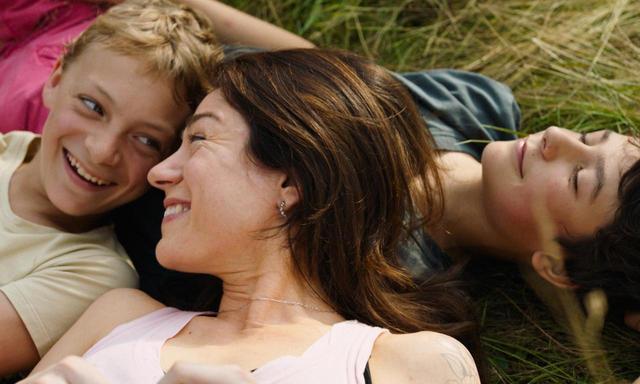Thirteen-year-old friends Léo (Eden Dambrine) and Rémi (Gustav De Waele) live in rural Belgium and have a deep and intimate friendship that is universally accepted by both sets of parents. However, when they start high school after a carefree summer together, Léo becomes uneasy when their friendship is perceived in a different light among a new set of people and pulls away from Rémi following several homophobic remarks. As their bond disintegrates, the impact of this has far-reaching and tragic consequences for them both...
Coming-of-age dramas, as a broad rule, generally tend to boil down to one of two scenarios - something from childhood lost, or something from childhood saved. In the case of Lukas Dhont's haunting drama, it's not so much about one particular thing from childhood lost or saved, but a childhood itself irretrievably lost - both literally and metaphorically in the case of the two leads at the centre of the story. This might seem like it's bordering on emotionally manipulative, but the story and the screenplay navigate it with such deft handling and skill that it doesn't once become an issue. Indeed, how they handle and react to it all is what drives 'Close' so clearly.
Dhont's direction sets up their friendship and their intimacy in such a way that never explicitly states that they are gay or queer. It's just not defined for either of them yet, and nobody close to them - be it their parents, their older siblings - seem interested in putting a label on it either. Their relationship simply exists in a carefree world without judgment and with total honesty. Indeed, neither is the director interested in clarifying it either. We end the story never knowing whether they're gay or not because it's only important to other people's perceptions of them, and the tragedy begins when those perceptions are considered rather than their own emotional well-being. It's only when Léo and Rémi are brought into high school that it becomes something that has to be stamped and labelled for everyone else to understand. For them, it's as normal and innocent as anything else in their idyllic lives thus far.
Both child actors imbue their performances with a real sense of personality and character, and you see over the runtime how smart they are as performers. Nothing ever feels like it's been pointedly directed, instead it's all done on instinct. When Léo is made to attend a group counselling session, he bristles with anger easily and believably. When Rémi tries to reach his friend at a hockey practice, it's heartbreakingly vulnerable. Moreover, when Rémi's mother comes into the story, the scenes she has with Léo take on a quiet, understated power to them that is devastating up until the final scene, where it loses its impact by giving itself over to the obvious choice.
Comparisons have already been made to 'Call Me By Your Name', but 'Close' has more in common with something like Charlotte Wells' 'Aftersun', in which it captures life at a moment of change and transition. Yet, where 'Aftersun' moved in a haze of nostalgia and gentler feelings, 'Close' instead opens with warm summer and ends in darkened winters. The shift is unmistakable when the coming of age is hurled forward rather than gradually accepted like in 'Aftersun'. Undoubtedly, 'Close' is the kind of work that provokes discussion and will sit uncomfortably with audiences for days and weeks after the fact. Like last year's 'Happening', another European drama tackling a sensitive matter in an unflinching manner, 'Close' is unafraid to go to an uncomfortable place and confront the audience with its own perceptions. It is challenging, yet rewarding, and harrowing, yet beautifully realised.










































































